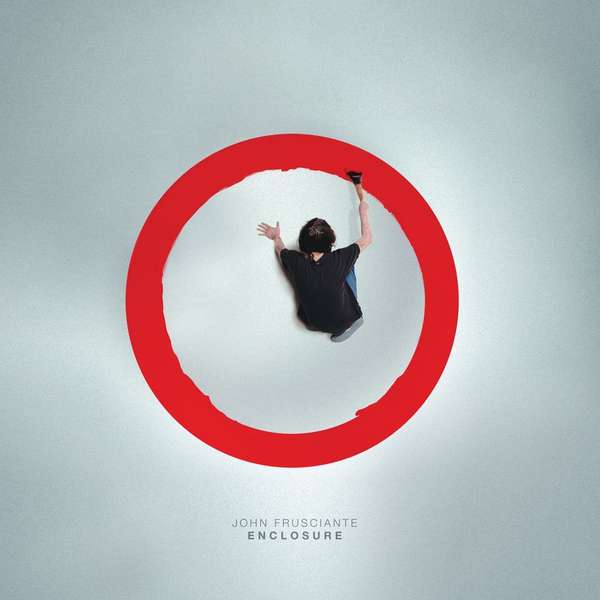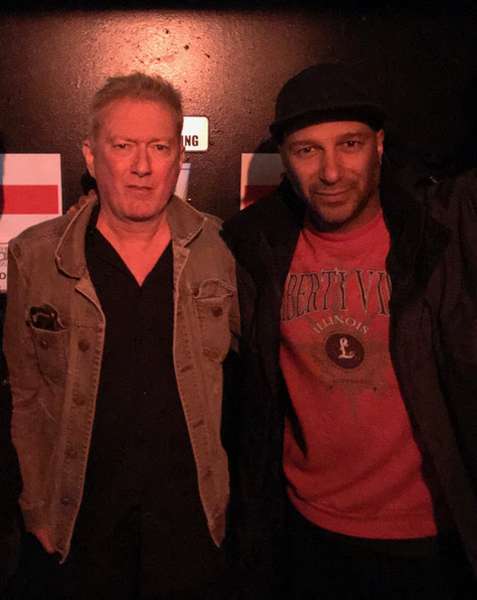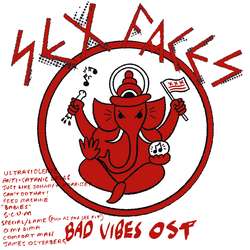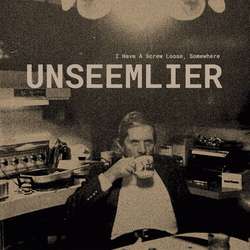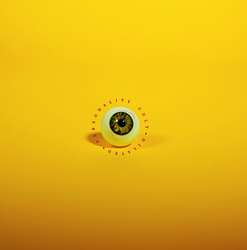Though he’s primarily known for being the former, on-again, off-again guitarist for Red Hot Chili Peppers, John Frusciante has long pursued a solo career that’s been full of peaks and valleys. After releasing a pair of somewhat fascinating, but difficult-to-listen-to albums in the 1990s, Frusciante hit his stride as a solo artist in the early 2000s, at one point releasing seven solo or collaborative albums during a one year period from 2004-5. Since that point, Frusciante’s uncompromising solo career has largely been hit or miss, reaching a high point with 2009’s The Empyreanbut more recently heading into bizarre territory even by his standards with releases like 2012’s Letur-Lefr EP (in which he experimented with hip-hop) and the same year’s PBX Funicular Intaglio Zone (a scatter-brained, self-described “progressive synth pop” album that was a bit of a mess). 2014’s Enclosure (released on the Record Collection label) positions Frusciante on slightly more firm territory since the material here sounds somewhat similar to the types of music he was making during his most prolific period in the mid 2000’s. Unfortunately, this album seems to go nowhere, made up of experimental electronic music that requires a ton of effort to get into and offers scant payoff to the listener.
The album starts off well enough, with the serene and almost icy instrumental “Shining Desert” at least having a consistent structure to it. The majority of the track consists of Frusciante unleashing snarling guitar over a bouncy synthesized bass, but late in the going there are hints of the types of baffling songwriting choices that crop up regularly throughout the rest of the album. Breakbeat electronic drumming certainly changes the feel of the track, but I’m not sure that it’s necessarily an improvement. Follow-up track “Sleep” is the first to introduce Frusciante’s vocals that, any way you break them down, aren’t at all easy on the ears. Arguably, the singing is the one element that’s likely to make any Frusciante album a love-it-or-hate-it affair since throughout most of his songs, Frusciante either barks out the vocals in rough, scratchy baritone that barely seems capable of holding a melody, or strains so heavily in a higher, almost screamy register that it’s difficult to take the singing all that seriously. Musically speaking, songs like “Sleep” and “Run” have a haunting quality to them – the latter of these two songs has belchy, jarring electronic sound effects combined with wacky keyboard progressions and even a smooth string section. Honestly, this darker tone to the material was a welcome addition to Enclosure and a definite change from the almost artificial cheerfulness of some earlier Frusciante efforts.
“Stage” may be the most consistent song here, pushed along by a relaxed drum machine rhythm and synthetic bassline straight out of the 1980s. The piece also benefits from the fact that Frusciante remains in control of his vocals, even (perhaps especially) when he goes into his trademark falsetto tenor range. “Fanfare,” on the other hand, with a tempo that bounces all over while bleating vocals grate on a listener’s ears, is indicative of the problems on this album as a whole. It’s a track that, due to the constant change-ups, is nearly impossible to get a grip on and settle into. Down the stretch, “Cinch,” “Zone,” and “Crowded” boast nifty, uptempo drum programming and delicate melodies playing under the heavy rhythms, but since the vocals on these tracks are quite similar in their sound, approach and construction, it becomes increasingly difficult to distinguish one track from another. By the time album finale “Excuses” comes along, I suspect most listeners will be ready for this somewhat intriguing but ultimately rather pointless album to end.
Over the course of an unconventional career as a solo musician releasing music on his own terms, John Frusciante has had a handful of outstanding albums, but in between these triumphs, he’s produced work that was entirely mediocre. It’s not surprising then that his output has proven to be divisive, a fact that’s unlikely to change with the release of Enclosure. This album is a slight improvement over the ones that immediately preceded it, and like most Frusciante releases, it displays unyielding conviction and has many genuinely unique ideas with regard to music composition. I’d even go so far as to call it a decent enough album to throw on as background music, but I’d be surprised if anyone who had just listened to the album would even remember much of anything about it. Many of these songs are nearly identical, and none come across as being a true standout on an album that’s in desperate need of one. Enclosure in the end is unremarkable and actually forgettable; a disc that fans of Frusciante might appreciate, but most everyone else would be wise to steer clear of.
